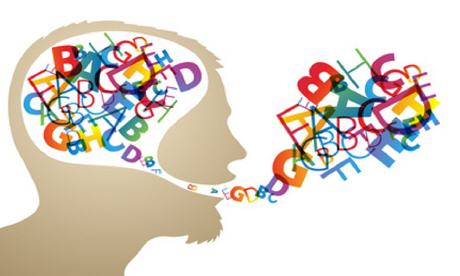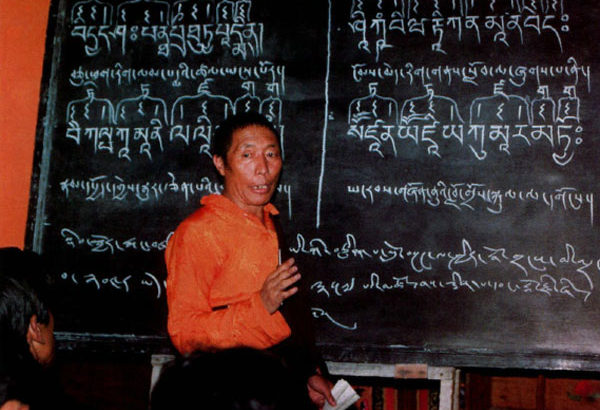España/Febrero de 2017/Fuente: Cuatro
Durante el encuentro, Marín ha agradecido a estos profesores «su implicación» en la difusión de la lengua y cultura española, y ha reconocido el trabajo cotidiano de estos docentes «haciendo frente a dificultades como la diversidad de edades y de niveles de lengua» del alumnado, mayoritariamente españoles de tercera generación en sus respectivos países, muchos sin conocimientos previos de castellano.
El secretario de Estado ha recordado el esfuerzo hecho desde el Ministerio para «paliar las carencias que se había detectado en estas enseñanzas» subrayando la adopción de un modelo mixto de enseñanza semipresencial que facilita la aplicación de los horarios que establece la norma de estas enseñanzas.
«Como consecuencia de la aplicación de este modelo, los desplazamientos se han reducido y el horario de tres horas semanales es ahora más flexible y, por tanto, más fácil de cumplir para los alumnos y sus familias», ha explicado Marín sobre currículo que cursan actualmente los alumnos de un ALCE, que pueden inscribirse a partir de los 7 años hasta alcanzar niveles universitarios.
Los estudiantes que superan la prueba final de las enseñanzas reciben el Certificado de Lengua y Cultura Españolas, expedido por el Ministerio de Educación, Cultura y Deporte en el que se hace referencia al nivel del Marco Común Europeo de Referencia para las Lenguas (MCERL) alcanzado.
Actualmente, unos 15.000 alumnos se escolarizan en las 14 Agrupaciones distribuidas en los siguientes países: Alemania, Austria, Australia, Bélgica, Canadá, Estados Unidos, Francia, Luxemburgo, Países Bajos, Reino Unido y Suiza.
ENCUENTRO CON ESCUELAS EUROPEAS
Durante su viaje a Bruselas, el secretario de Estado de Educación también se ha reunido con profesores españoles de las Escuelas Europeas, a los que ha agradecido su trabajo a la hora de trasmitir a los alumnos los valores y la identidad europea.
«Las instituciones educativas deben participar en la construcción de una identidad europea que arrope las distintas identidades, creencias y pensamientos. Y el papel que juegan las Escuelas Europeas, y ustedes como profesores del sistema es en este sentido incuestionable», ha afirmado Marín ante los docentes de las 14 Escuelas Europeas repartidas en siete países.
Las Escuelas Europeas constituyen un organismo intergubernamental gestionado conjuntamente por los gobiernos de los 28 estados miembros de la Unión Europea. Gozan de estatuto jurídico de centro público en los países en los que están ubicadas y ofrecen enseñanzas de Educación Infantil, Primaria y Secundaria en un sistema educativo propio.
Los alumnos, prioritariamente hijos de funcionarios de la Unión Europea, al terminar la escolaridad obtienen el título de Bachillerato Europeo, que se reconoce hoy día como requisito de acceso a la Universidad, además de en los estados miembros, en otros países, como Estados Unidos o Suiza.
Las Escuelas Europeas ofrecen una enseñanza plurilingüe y multicultural a sus alumnos, al mismo tiempo que van construyendo su identidad europea, conservando al mismo tiempo su propia identidad cultural como nacional de uno de los países de la Unión.
Las Escuelas ofrecen enseñanza en las 23 lenguas oficiales de la Unión Europea, aunque el alumnado se divide por secciones lingüísticas de 15 de estas lenguas. En Infantil y Primaria, las enseñanzas se imparten en totalidad en la lengua materna del alumno, aunque se estudia una primera lengua extranjera desde primero de Primaria, que ha de ser alemán, francés o inglés, obligatoriamente. A partir de la Secundaria las diferentes áreas se imparten en lengua materna o en la primera lengua extranjera. Los alumnos pueden estudiar hasta cuatro lenguas extranjeras.
Fuente: http://www.cuatro.com/noticias/sociedad/Educacion-Bruselas-Agrupaciones-Lengua-Cultura_0_2325226062.html










 Users Today : 21
Users Today : 21 Total Users : 35460152
Total Users : 35460152 Views Today : 35
Views Today : 35 Total views : 3418818
Total views : 3418818